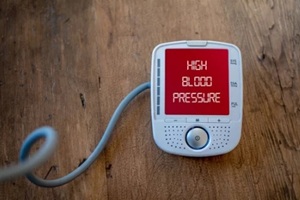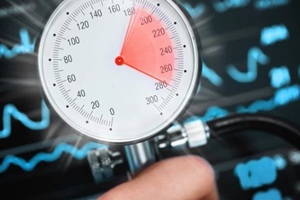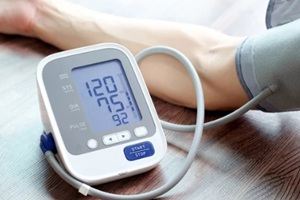 Effective blood pressure management requires taking the appropriate medicine as prescribed by a healthcare professional and implementing appropriate lifestyle changes. High blood pressure, also dubbed hypertension, is a common health issue that can lead to severe problems if left uncontrolled. However, the correct treatment plan can help you manage your blood pressure and reduce complications.
Effective blood pressure management requires taking the appropriate medicine as prescribed by a healthcare professional and implementing appropriate lifestyle changes. High blood pressure, also dubbed hypertension, is a common health issue that can lead to severe problems if left uncontrolled. However, the correct treatment plan can help you manage your blood pressure and reduce complications.
Read on for an overview of medications used to treat high blood pressure, along with lifestyle changes that can enhance the effectiveness of these medications.
Comprehending Blood Pressure Readings
The first step in managing high blood pressure is making sense of your blood pressure readings. Blood pressure is logged as two figures, such as 120/80 mmHg. The first figure is your systolic pressure, which gauges pressure in the blood vessels when the heart pumps. The second number is your diastolic pressure, representing the pressure when the heart is paused between beats.
According to the American Heart Association, normal blood pressure is below 120/80 mmHg, while elevated blood pressure is considered to be between 120 and 129 systolic and below 80 diastolic. High blood pressure is categorized into two stages:
- Stage 1: 130-139 systolic or 80-89 diastolic
- Stage 2: At least 140 systolic or 90 diastolic
If your blood pressure gets to 180/120 mmHg or above, it’s considered a hypertensive crisis, and you should immediately seek medical assistance.
When your doctor diagnoses you with high blood pressure, they will likely recommend medications and lifestyle changes based on your risk of complications. The higher your blood pressure and the more risk factors you have, the more aggressively they’ll want to treat your condition.
Common Medications for High Blood Pressure
If changes in lifestyle are insufficient to lower your blood pressure, your doctor may require you to take medication. Many individuals with high blood pressure must take specific drugs to keep it at a healthy level. A variety of blood pressure drugs with various mechanisms are available.
Some common categories include:
- Diuretics: Also called “water pills,” diuretics eliminate any extra fluid and salt from your body. They’re often the first medication used to treat high blood pressure. Examples include chlorthalidone, hydrochlorothiazide, and furosemide.
- ACE inhibitors: These widen or dilate your blood vessels to lower your blood pressure. Examples include captopril, enalapril, and lisinopril.
- ARBs: Angiotensin II receptor blockers prevent a hormone called angiotensin from narrowing your blood vessels, keeping them open and lowering your blood pressure. Some ARB options include valsartan, losartan, and olmesartan.
- Beta blockers: This class of medications slows your heartbeat and reduces the force of each contraction to lower your blood pressure. Examples include atenolol, labetalol, and metoprolol.
- Calcium channel blockers: These medications block calcium from entering cells in your heart and blood vessels. This allows the vessels to relax and remain open, lowering blood pressure. Examples include amlodipine, diltiazem, and nifedipine.
 Other types of blood pressure medications may be used if these don’t work well enough or have unacceptable side effects. Most people need to take two or more medications from different classes to control their blood pressure. The goal is to find the best mix with minimal side effects. It often takes some trial and error and working closely with your healthcare provider.
Other types of blood pressure medications may be used if these don’t work well enough or have unacceptable side effects. Most people need to take two or more medications from different classes to control their blood pressure. The goal is to find the best mix with minimal side effects. It often takes some trial and error and working closely with your healthcare provider.
Enhancing Medications with Lifestyle Changes
While drugs are often a necessity in blood pressure management, lifestyle changes can enhance the effects of these medications. They may also allow you to reduce doses, minimizing side effects. Some beneficial lifestyle changes include:
- Following a healthy diet: Limiting sodium can help some medications work better. The DASH diet, which mainly relies on veggies, fruits, low-fat dairy, whole grains, and lean protein, may boost blood pressure treatment.
- Losing extra weight: Carrying excess weight strains your heart and blood vessels. Losing even a little weight can make a significant impact if you have high blood pressure.
- Increasing physical activity: Regular exercise helps you slim down and boosts heart health. Aim for at least 2.5 hours every week of moderate cardio activity.
- Limiting alcohol: For people who drink, it’s best to limit yourself to one drink per day if you’re a woman and two if you’re a man. Heavy drinking can make it more difficult to control your blood pressure.
- Managing stress: Coping with stress through relaxation techniques, exercise, social connection, professional help, and other healthy avenues can aid blood pressure treatment.
- Quitting smoking: Smoking damages blood vessels and makes medications less effective. Quitting can dramatically improve heart health.
- Following treatment plans: Take medications exactly as prescribed. Track your blood pressure with at-home monitoring and keep all medical appointments for medication adjustments as needed.
Rely on Imperial Center Family Medicine for a Complete Blood Pressure Management Plan
 Controlling high blood pressure often requires both medications and lifestyle changes personalized to your specific health profile and needs. Work closely with your healthcare providers at Imperial Center Family Medicine to develop a treatment plan just for you.
Controlling high blood pressure often requires both medications and lifestyle changes personalized to your specific health profile and needs. Work closely with your healthcare providers at Imperial Center Family Medicine to develop a treatment plan just for you.
With consistent follow-up and a willingness to make needed diet and lifestyle adjustments, many people can reach their blood pressure goals. This lowers the risk of severe complications such as blindness, stroke, kidney disease, and heart attack.
Imperial Center Family Medicine’s blood pressure management specialists have extensive experience helping patients gain control of this dangerous yet manageable condition. Contact us at 919-873-4437 or online today to review your treatment options and get on the road to better health.
